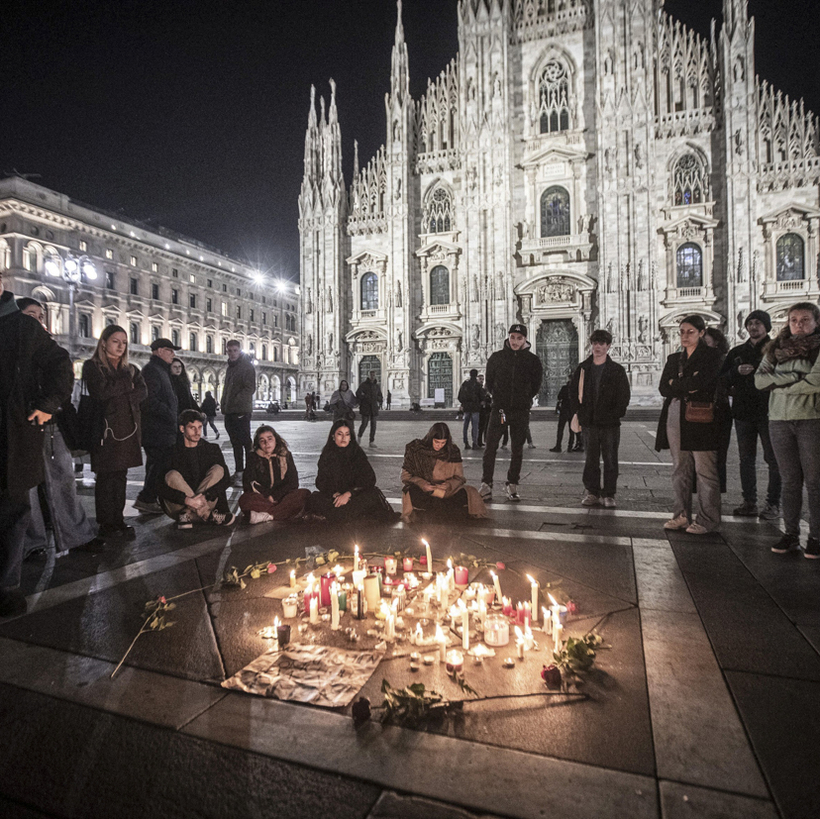On November 25, a sea of 500,000 women stormed the Italian capital, waving flags as they filed around the Vatican, through the Imperial Forum, and past the Colosseum. “Fermiamo il femminicidio,” they chanted—“Femicide must stop.” Some held posters with slogans such as Why does alcohol excuse his actions, and condemn mine? and No means No. Many wore pink bandannas, scarves, and hats.
Hundreds of miles away, in Messina, Sicily, despite torrential rains, women took to the streets chanting the same slogans. On the coldest weekend since last winter, crowds also formed in Turin, Padua, Bologna, and Milan. In some cases, the protests bordered on violence. In Rome, one group of women left a Molotov cocktail near the offices of Pro Vita & Famiglia, a nonprofit anti-abortion association. (The bomb never went off.)


